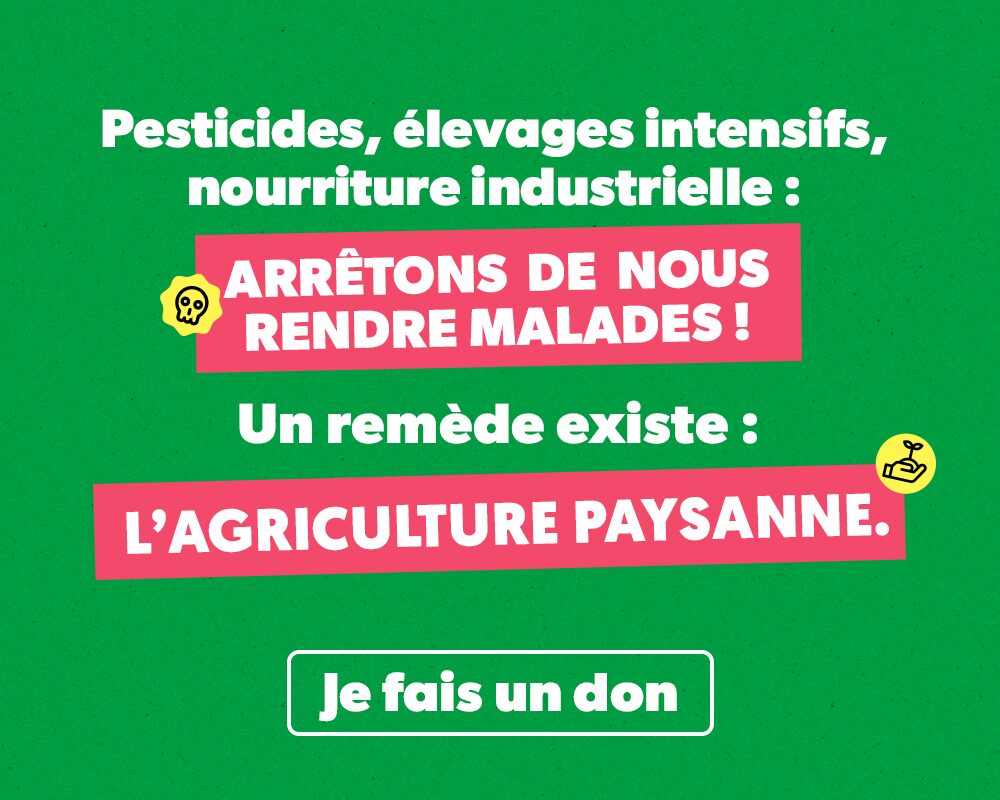For a European organic regulation adapted to the realities of small producers in the South
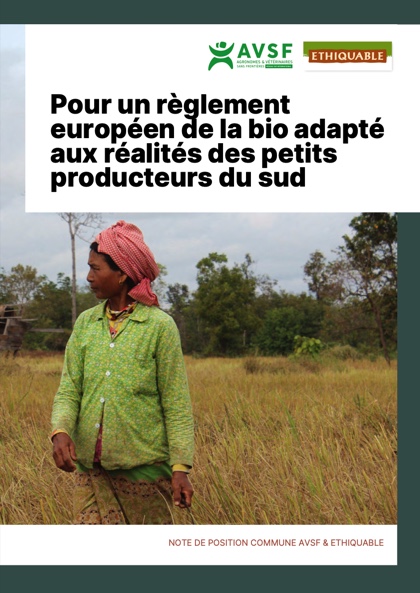
This position paper carried by Agronomes et Vétérinaires Sans Frontières – AVSF and ETHIQUABLE takes stock of developments in European Regulation (EU) 2018/848 on organic certification, which applies to small producer groups in southern countries from January 2025. The year 2025 is a strategic one for many cooperatives, which are undergoing their first audits under […]
A sustainable and self-sufficient cashmere industry in Mongolia
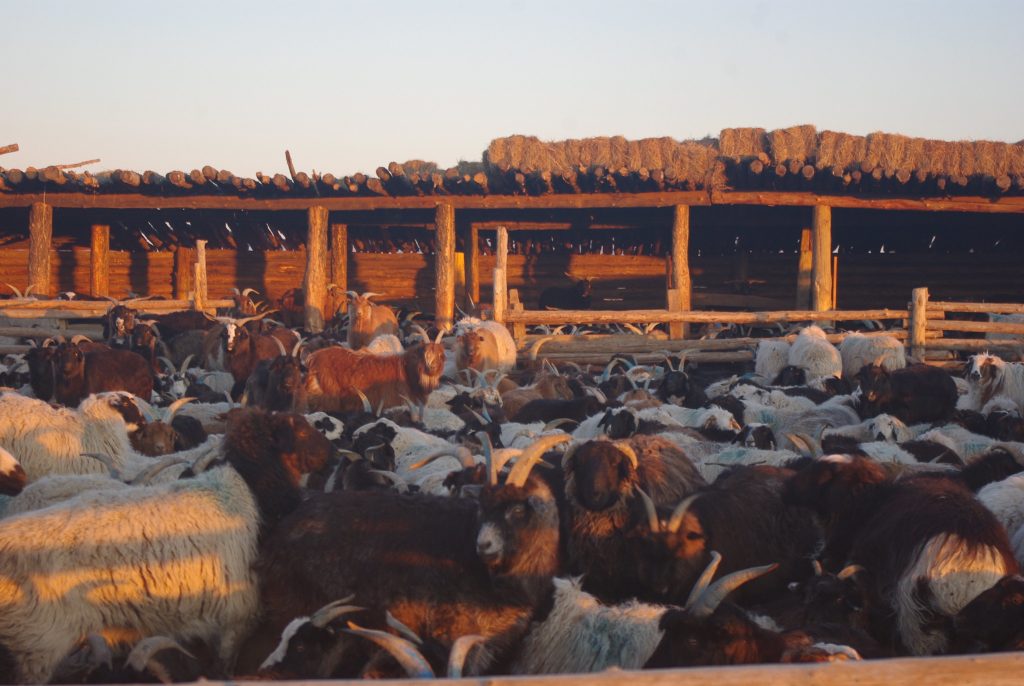
Organic sesame production in Cambodia
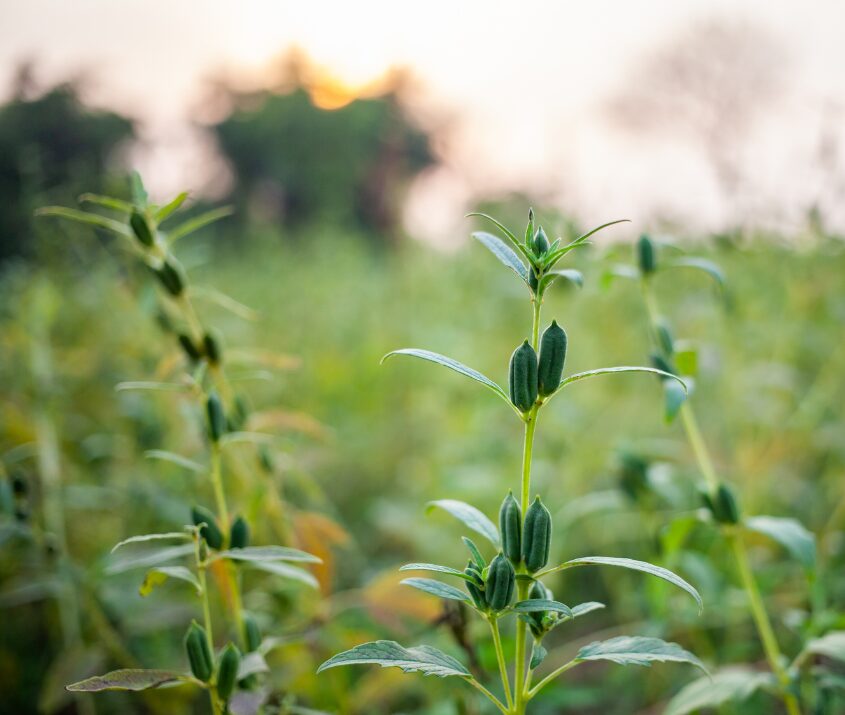
Consolidated agricultural cooperatives
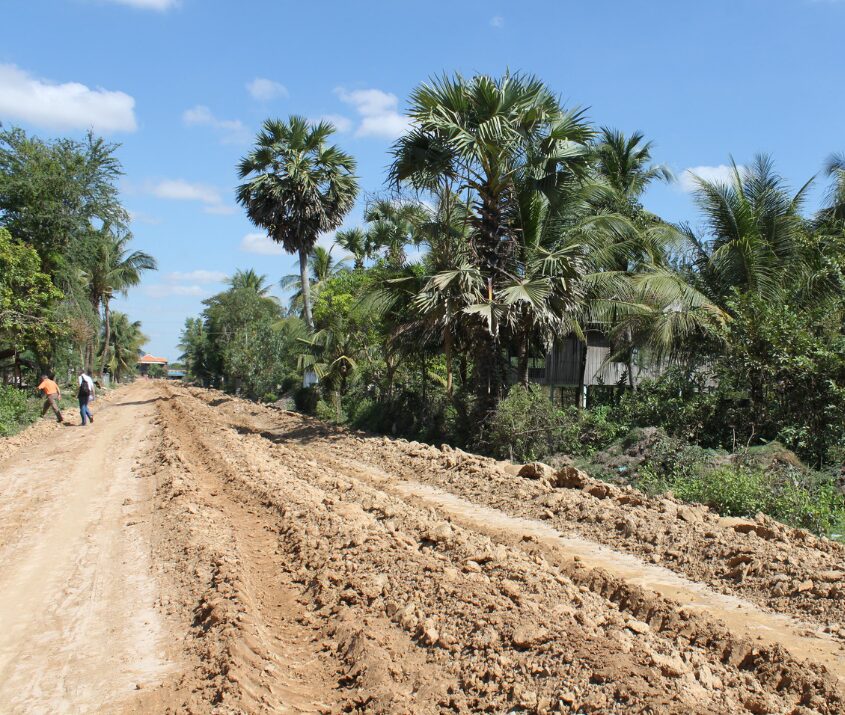
Combating food insecurity in Haiti’s Central Plateau

Mongolian cashmere: launch of an ethical brand created by herders
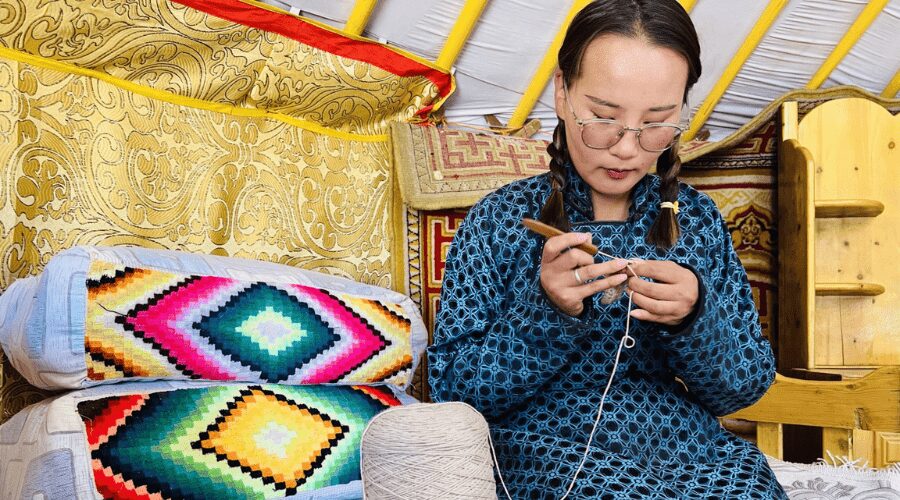
“From the heart of the herders to your hands”. This brand of cashmere products from the Eetlei Baylag cooperative network (EBCN) embodies the work accomplished over the past 10 years with AVSF’s support in Mongolia. In 2023, this network, which today brings together over 2,200 goat breeders in 9 cooperatives, is embarking on a new […]
Cambodia: how can we support farmers’ organisations in their efforts to create profitable markets?
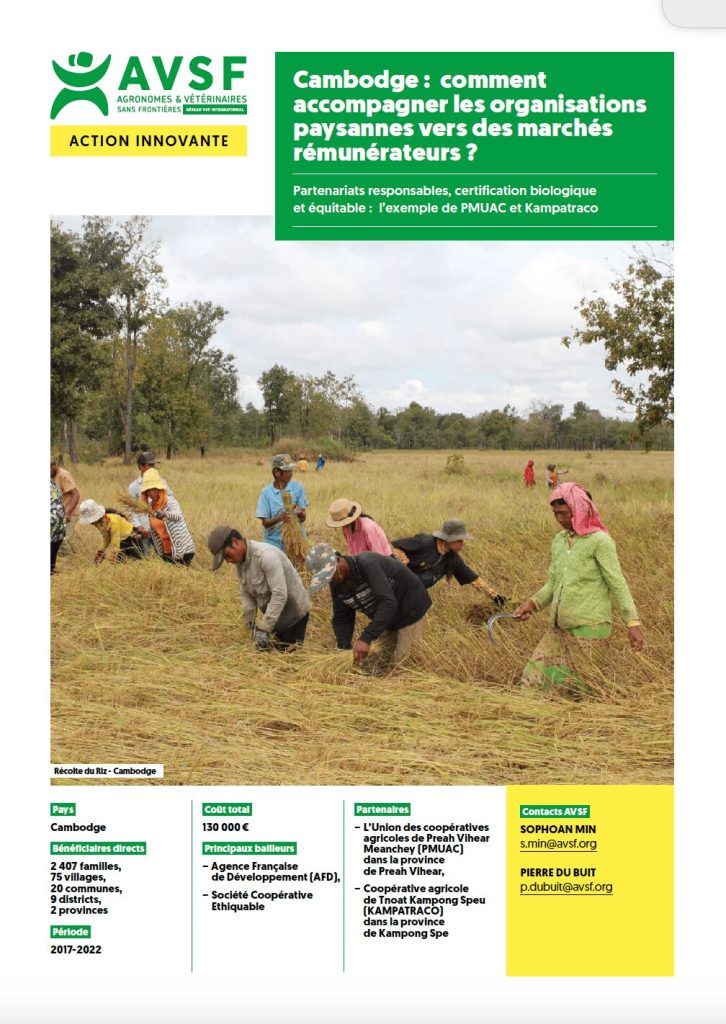
In Cambodia, agriculture is the main source of income for rural populations and plays an important role in economic activity and maintaining food security. The rice industry is a major sector, contributing over 15% of GDP. Exports of rice (milled/wholly milled) rose sharply between 2010 and 2020, from 51,300 tonnes to almost 700,000 tonnes. At […]
Guidelines for designing capacity-building programs for farmers’ organizations
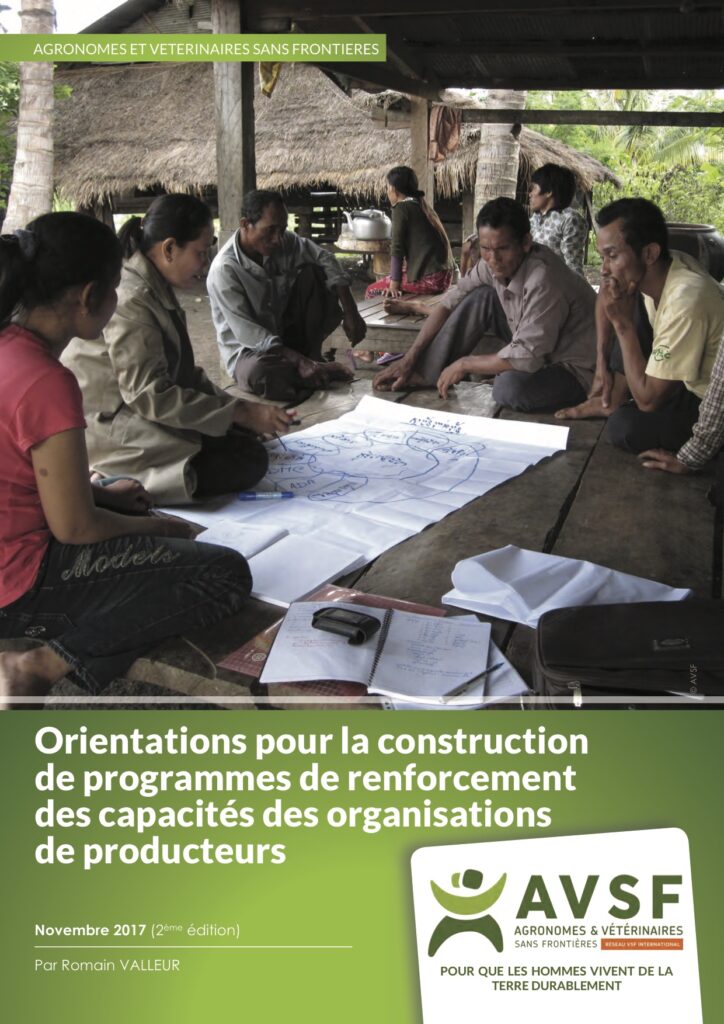
Under current local and international market conditions, small-scale producers, who are numerous and scattered, have to contend with dominant players (traders, local and international intermediaries, agro-industries, supermarket centres, etc.) who control the agricultural raw materials supply chain. The absence of national policies in favour of rural regions in the South and the growing domination of […]
Annual Report 2023
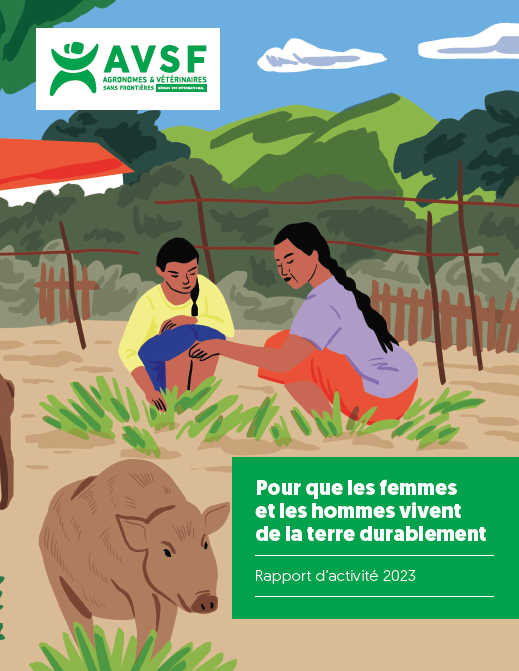
The activity report is the most comprehensive document for everything you need to know about AVSF’s missions and the 2023 balance sheet.
New regulations for zero deforestation cocoa
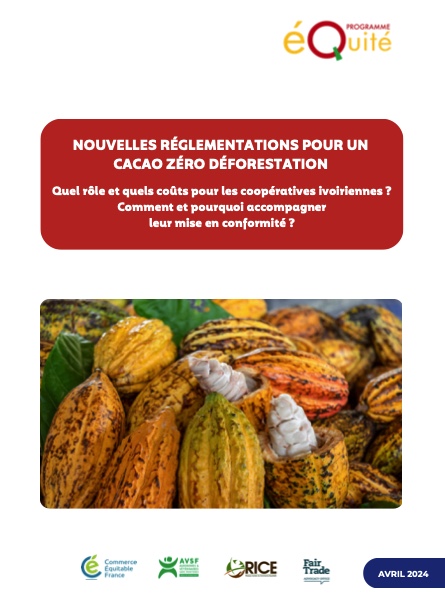
Cocoa production has contributed significantly to deforestation, a major cause of climate change and the collapse of biodiversity. To curb this phenomenon, in 2023 the European Union adopted a regulation banning the import of products that have contributed to deforestation from 2021, applicable from 2025. For their part, Ghana and Côte d’Ivoire have produced the […]
Regulate value chains and trade to reach sustainable and equitable food systems
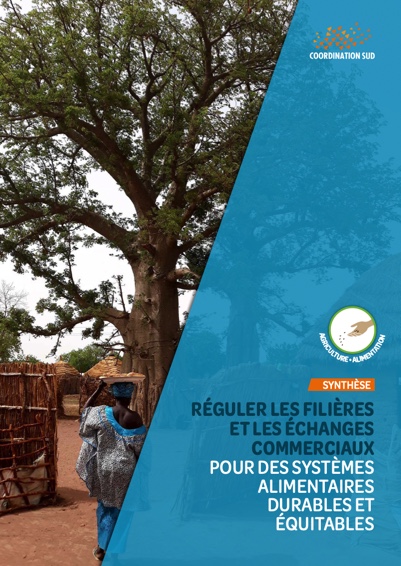
Following decades of unbridled liberalization, recent crises (COVID-19 pandemic, wars, and food crisis) and rising figures on hunger are recalling the need to regulate food systems. New measures such as mirror clauses and anti-deforestation measures are being added to the European Union (EU) agenda for regulation of value chains and trade, marking the timid return […]
Organic Certification Preparation Manual
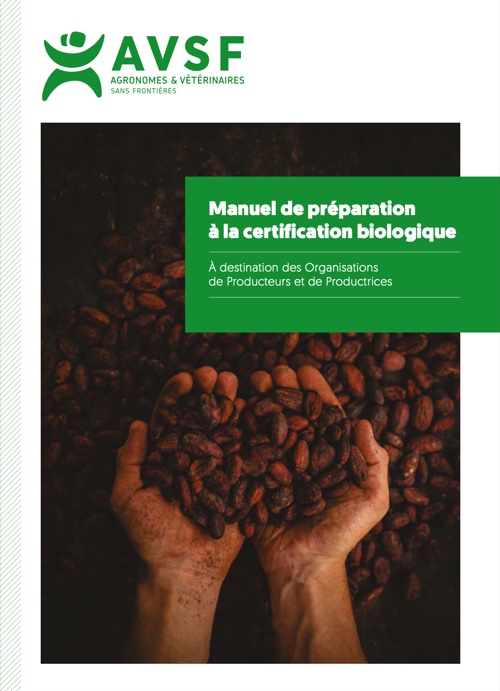
This guide is specifically intended for Producer Organisations (POs) located incountries outside the European Union (EU), as well as for AVSF’s technical teamsworking with them. Its objective is to describe the different stages of organic certification, and tohighlight the difficulties that can be encountered, in order to anticipate and planas well as possible this process […]



